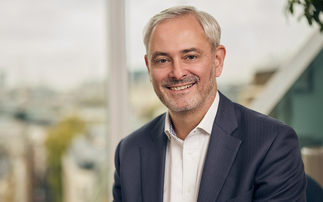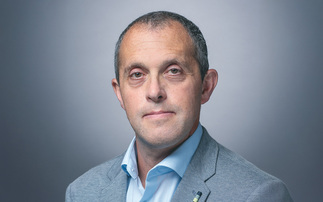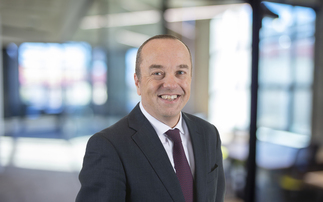The launch of a new income share class for the Close Finsbury Continental European Equity fund meets growing demand from investors who want dividends from European investments, say Charles Glasse and Chris Garsten
Apart from sharing the same initials, fund managers Charles Glasse and Chris Garsten realised they shared a common investment philosophy with regards to investing in Continental Europe; focusing on undervalued stocks but also with a bias to special situations for enhanced performance. This realisation led them to leave their former employers, M&G and Credit Suisse respectively, and set up their own investment boutique, 2CG Limited in March 2000.
2CG was then appointed investment adviser to the Close Finsbury Continental European Equity fund in April 2002. Their appointment demonstrates Close Finsbury's philosophy of outsourcing the management of their investment funds to specialist boutiques, providing investors with access to 'best of breed' managers.
Glasse & Garsten both have a wealth of credibility as regards managing European equities: Glasse was head of Continental European equities at M&G where he managed the £400m European Dividend fund from October 1989 until March 2000. Garsten managed the CS Netherlands fund from October 1992 until March 2000, during which time the fund grew from £1m to £100m and won a number of performance awards. In particular, Forbes magazine featured it as one of the top offshore funds out of a universe of over 6,000 given its performance over the previous one, three and five years.
Both Glasse and Garsten personally invest in the funds they manage; this means they are totally committed to getting the best results. This personal interest also drives their approach to investment; finding that all-important balance between returns and risk. "We always focus on producing good returns, but we don't like to do so by taking massive risks," says Glasse. "Our aim isn't to shoot the lights out; we're just trying to invest in what we believe are good companies that are undervalued. If we can also offer some sort of yield as well, then that's going to be attractive to investors."
It is the mention of European yield which is grabbing investors' attention at present. Typically there has been very little choice for income-seeking investors when it comes to Continental Europe. With many UK equity income managers finding dividends more difficult to come by, investors need to look elsewhere for income.
Close Finsbury expects the launch of a new share class for its Continental European Equity fund to prove very popular with investors, as it will allow them to receive an income from a well-established growth portfolio. The income share class, which will be available from the beginning of March 2006, meets this growing demand for European income. Glasse and Garsten say that the move will enable clients to enjoy the best of both worlds.
"The Close Finsbury Continental European Equity fund has always produced a good yield due to the companies it invests in and now we're freeing it up and making it available to investors," explains Glasse. "Over the last three calendar years, the fund has produced an annual yield ranging from 2.2%-3%. We expect the yield to increase as shareholder activism forces management change." The fund has delivered a bid-to-bid return of 113.51% over the three years to 6 February 2006, according to figures compiled by Standard & Poor's. This is comfortably above the 93.75% average return achieved by the Equity Europe ex-UK sector and enough to push the fund into fifth place out of 86 portfolios.
In terms of portfolio construction, the fund holds between 30 and 40 stocks all of which have to demonstrate the ability to produce growth in an industry that's not so competitive that all the benefits will be competed away. "Typically, the companies we like have good fundamental business models, monopolistic-type characteristics, strong cashflows, good balance sheets and plenty of room for increases in shareholder returns," explains Glasse. The pair also find themselves drawn to large-cap names. "We prefer to have large stocks in the portfolio because over the long term they do just as well as small caps, but are much easier to deal in," says Glasse.
Not that large-cap companies are all they look at. 2CG also tend to invest in sectors that are out of favour, an approach that is in stark contrast to the market. "It's becoming ever more short-term in its nature with everybody worried about the next quarter's earnings," Glasse explains. "We like to take a step back and ask ourselves whether this is the kind of share we'd want to own on a two-year view." A prime example in recent years has been airports. "The share prices of airports in Europe were badly hit by the likes of 9/11 and Sars," says Glasse. "However, our view was that within two or three years people would start flying again and, because airports are natural monopolies, they have the ability to put up prices. We saw them as very, very attractive businesses and have been proved right."
Aside from portfolio construction, sectors and stocks are viewed as equally important. Using automotive terminology, Glasse defines his ideal company as a car which everybody thinks is a basic mini, but which, in reality, has a supercharged engine under the bonnet. "It's true we're looking for hidden value, but sometimes it can also be fairly obvious," he adds. One recent purchase has been Viscofan, a Spanish sausage skin manufacturer, which has become a leading player in its field - but isn't followed by any of the big brokerage houses. "It has gone from being in a marketplace where there's been oversupply and heavy pricing pressure to one benefiting from less capacity and an improvement in world prices," explains Glasse.
Another industry currently in favour within the fund is Italian banking. "We agree with the general view that there's going to be a lot of takeover activity in the sector," says Glasse. "When you get a lot of consolidation going on within a particular market, it means the profitability of the companies within that marketplace rise on a semi-permanent basis because there is less competition. The remaining firms can also spread the heavy costs of IT over a much wider client base."
Consolidation is one of the many factors which encourage both Glasse and Garsten to feel optimistic about the coming year. "Firstly the Euroland economy is finally picking up. Not only are the economic indicators now improving but also bank credit is growing at 9% per annum," says Glasse. "This normally equates to economic growth at 2.5% rather than the current 1.6%. In addition unemployment is falling and this should help consumer confidence." Secondly, pension funds and insurance companies in Europe continue to have very low equity exposure. "We believe that only the Americans have been systematically buying the European market; as shares rise, it is likely that the absent investors return to the market," explains Glasse. Finally, managements should beware their shareholders. Glasse elaborates: "Management behaviour towards shareholders is undergoing a seachange. We are still probably 5-10 years behind North America but over the past few years there has been a dramatic improvement. Even very low growth businesses are now sometimes producing excellent shareholder returns. Earnings growth can come either from using strong cashflow to pay down high debt levels, or much more commonly, from share buy backs."
All this adds up to rising markets for Continental Europe - and hopefully corresponding capital growth and yield for the Close Finsbury Continental European Equity fund in 2006.











